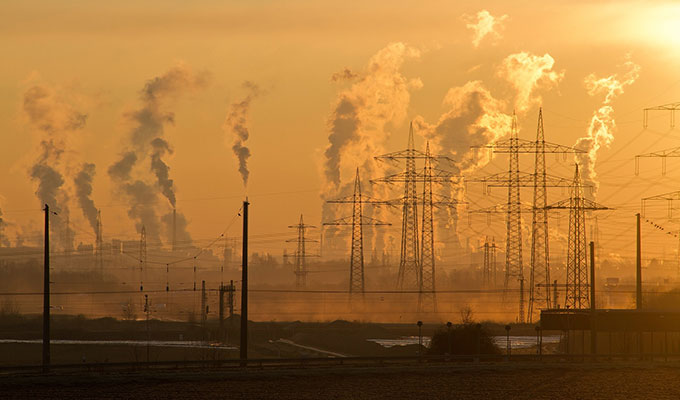Perhaps spurred on by the central government’s 3-year environmental plan, residents living nearby a factory in Xinyi town, Xuzhou city in the north of Jiangsu province, have alerted local authorities to a strong odour, which they suspected was the result of the factory discharging industrial waste gas into a sewer along the 205 National Road.
Central Environmental Protection inspectors were called in to investigate the area. However, inspectors could not prove that the company’s discharge pipe was connected to the sewer along the road. However, there were many storage tanks and empty barrels throughout the factory that omitted a strong odour. These raw material barrels were exposed and the smell in the plant area was heavy, reported Sina News.
Furthermore, it was revealed that Xuzhou Tengshun Trading Co., Ltd. had not complied with existing waste policies, where the “project construction is inconsistent with the Environmental Impact Assessment and self-inspection reports”. Therefore, after collecting sufficient evidence, and in line with the current environmental plan, the government reasoned the company’s actions were illegal and imposed a ¥80,000 fine and cut electricity to the factory. Since production ceased, the odour and air quality has improved.
Discussing the case with The Nanjinger, local restaurant manager, Wu Juan said, “The problem with pollution lies not only in the air but the land and water too. Nanjing’s water quality used to be awful. In the 80’s, we had to drink from dirty tank water or underground water. After they improved the pipes, building and factory production began throughout the city, and since there were no regulations, waste was dumped into the rivers; this is where we get the heavy metals. The more regulations are enforced, the better it gets.”
Since the beginning of 2018, China’s central government has paid great attention to cracking down on violators of environmental protection laws. A reported 18,000 additional inspectors and staff were assigned in April to support existing inspectors and fasten the pace of the country’s environmental plan. China aims to clean its severely polluted waterways and land to levels fit enough for agricultural production by 2020.
Regarding air pollution, Miss Wu went on to talk about how things have changed in Nanjing since ex-leader Deng Xiaoping came into power. “From about 2003 until about 2010, the air was so bad, in fact it was probably the worst it’s been. When Nanjing was preparing for the 2014 Youth Olympics, the city’s air was black all the time, we rarely saw blue skies. They would build avenues, and olympic buildings, rip them down, fix them and rebuild them, it was seriously so bad. Then after about 2016, the air in Nanjing has really improved a lot. It’s much much better now.”
The case of Xinyi is just the latest to hit the headlines. Earlier this year, The Nanjinger reported on the local man who was fined ¥2 million for systematically discharging toxic waste into drains and rivers near his home in Nanjing.
In addition to the country’s 3-Year Anti-Pollution Plan, China aims to rid itself of what it calls the “one size fits all” law, with regards to factory pollutants. “China has made progress tackling water pollution, but it is still struggling to impose unified standards, especially in poorer, water scarce regions, a government researcher said on Thursday”, wrote Hong Kong publication the South China Morning Post (SCMP) earlier this year.
Admonishing two mayors and a county chief at a meeting held on 9 June 2018, “You should dare to do a real job and actually grasp the problems you have failed to improve for years”, said He Xianghong, deputy head of an environment ministry monitoring team, reported SCMP. The article goes on to say that while the country’s environment has improved since 2017, “8.3 percent of sampled sites were still below grade V, and 77.9 percent of sampled sites were in the first three grades, which means the water was suitable for human contact”.
While the country has indeed come a long way in its efforts to clean up its water, food and air supplies, China still has a long way to go with its environmental plan. Blue skies are visible more these days in Nanjing than even a few years ago. But for people living in northern and eastern China, where pollution is felt the most, any serious efforts taken by the government are being warmly welcomed.











